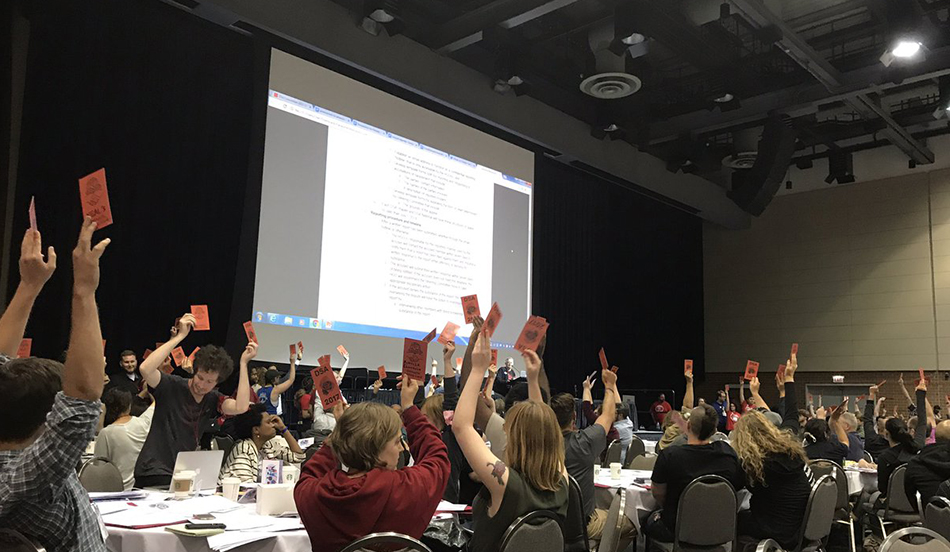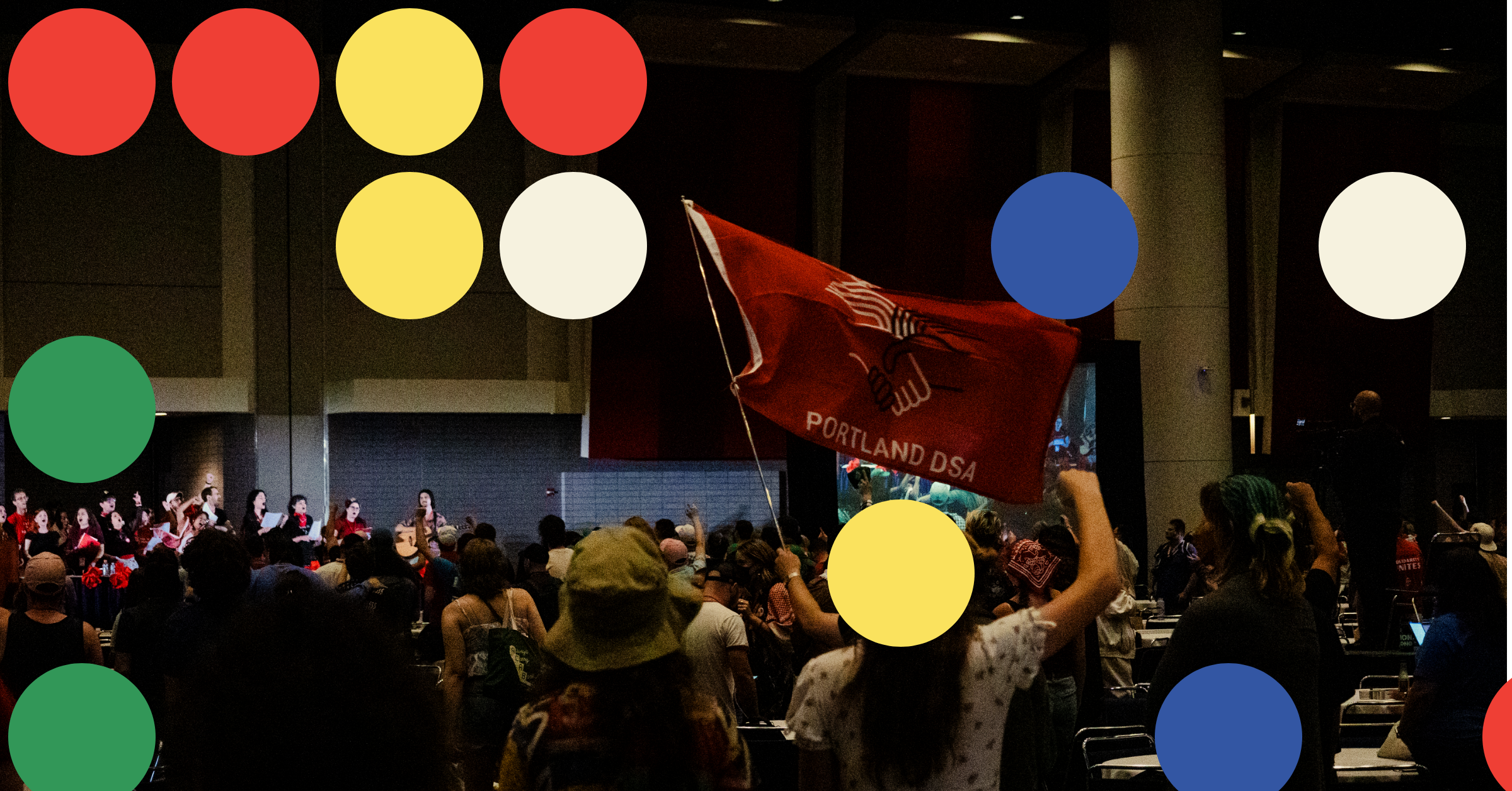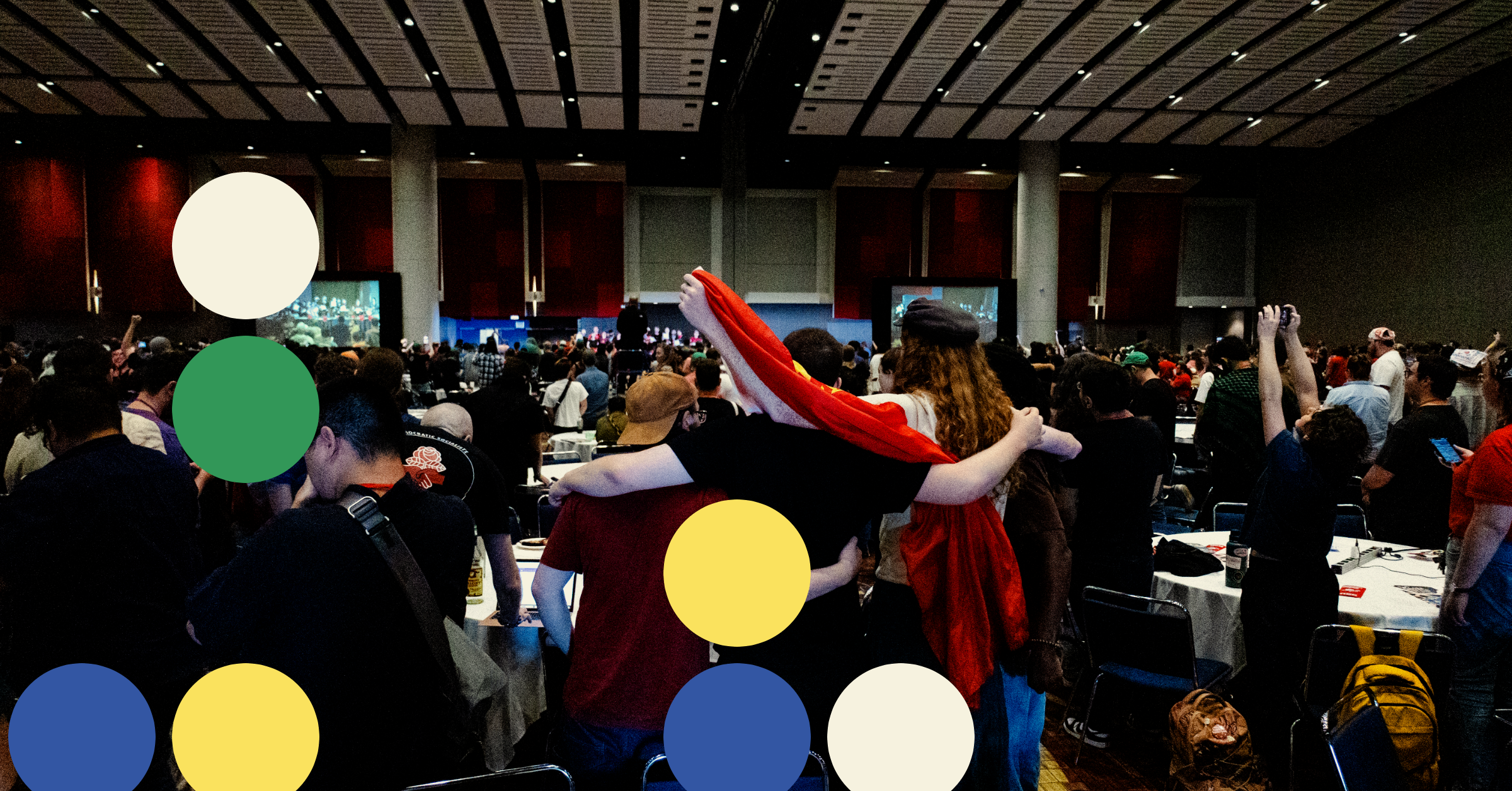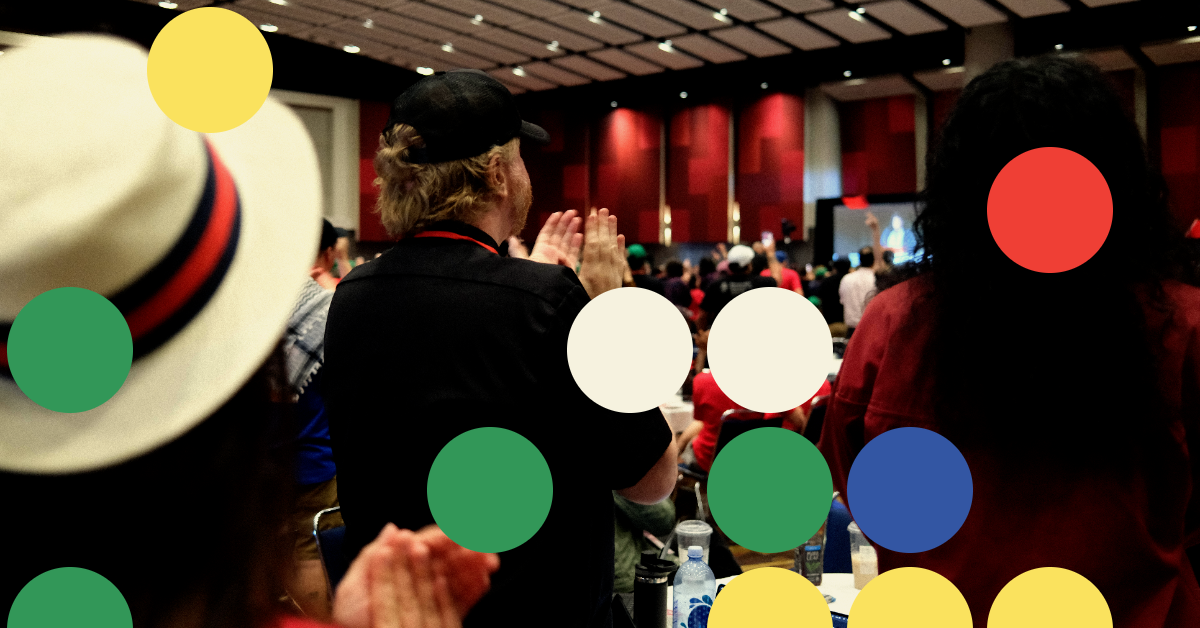If you like this piece, read more about where we stand and sign up to get our occasional email bulletins.
In DSA chapters across the country, members are turning their eyes toward this summer’s national convention, electing delegates and drafting resolutions. But some members may wonder why it all matters. They’re primarily focused on their local work, so why should they care about members they’ve never met getting together in Atlanta?
Our national conventions are vitally important for every DSA member. As a democratic organization, this biennial meeting is the highest decision-making body in the organization, and the decisions it makes this summer will help determine the course of DSA for the next two years in ways that will affect every aspect of the organization. Between the resolutions and bylaws amendments we’ll consider and the new National Political Committee we’ll elect, the Atlanta convention will decide what kind of organization DSA is.
One of the most important questions the convention will face is what issues and campaigns DSA will put our resources into over the next two years. To consider this question, we should always ask ourselves: In what ways and on what issues is DSA best situated to advance working-class struggle?
At our 2017 convention, members voted to set three priorities: organizing with the labor movement, developing electoral work, and campaigning for Medicare for All. Naturally, this resulted in significant member and staff time spent on these priorities, including the establishment of the Democratic Socialist Labor Commission (DSLC), the National Electoral Committee, and the Medicare for All (M4A) Campaign Committee. And that investment bore fruit. Our M4A work has successfully pushed many members of Congress to get on board and has won local victories toward removing the profit incentive from healthcare; DSA has supported and been deeply ensconced in militant labor struggles throughout the current strike wave and encouraged YDSA members to become militant socialist teachers; and DSA members across the country have won elected office on the crest of mass mobilization and an unabashed socialist vision.
This year, the National Convention will decide whether to remove any of these as a priority and whether to devote our organizational time and resources to new priorities. Our caucus, Bread & Roses, strongly believes that DSA must continue to press on these three critical aspects of socialist organizing. We also believe that along with Medicare for All, a socialist Green New Deal is the issue campaign with the most potential to build a big, powerful working class movement at this moment in history. That is why members of our caucus in the national Ecosocialist Working Group are working to support comrades across tendencies in DSA on a resolution for DSA to prioritize a socialist Green New Deal. This resolution would devote significant resources to developing a national Green New Deal campaign, one that can build the big working-class movement necessary to push for the ecological transition we need. The convention is where we will decide whether DSA will commit to these fights.
The national convention is also where will we decide how to use our national resources to develop and grow DSA. We believe that our members’ collective dues can best be put to use by hiring full-time organizers who can help newer and smaller chapters get started (incorporating and setting up bank accounts, recruiting new members, learning to fundraise and to build campaigns) and closely coordinate our national campaign work between all our chapters and the national organization. Others have argued that we should devote a substantial portion of our national budget to paying out uniform stipends to every chapter.
This August, DSA will continue to define our relationship as socialists to the labor movement. Bread & Roses members and many others believe that our focus should be making more socialists among workplace leaders, particularly in unionized workplaces where there are preexisting structures that workplace militants can harness to bring the fight to bosses and capitalists. Others in DSA believe that we should focus on building relationships with existing union leadership, whatever their politics, and use these instrumental alliances to advance fights for particular reforms. Still others are opposed to any particular focus or strategy regarding the labor movement at all. How we answer this question will determine what the DSLC does for the next two years and whether it focuses on creating more rank-and-file, militant socialist leaders in workplaces across the country, on building relationships with existing union leadership whoever they may be, or on nothing at all in particular.
Finally, at this convention, DSA will decide whether to fundamentally alter its structure. Some in DSA have called for an expansion of the National Political Committee (NPC), the body that governs the organization between conventions. Others want to create an additional leadership body that would act alongside the NPC. Others would abolish the NPC entirely. Some of these changes might make DSA a better organization; others would almost certainly make it worse. So far, none of the structural proposals answer the fundamental question of why the adjustments they seek would make DSA a more powerful weapon in the class war. As the structure of the organization should always be based on our real goal — more effectively fighting capitalists — we hope to hear more explanations along these lines from the resolutions’ authors. The decisions of how our organization is run for the next two years and how all the decisions discussed above will be put into action are of vital importance to every DSA member.
There’s a running theme in all of these decisions: What sort of organization will DSA become? Are we just another nonprofit organization in the vast constellation of progressive interest groups out there? Are we a loose network of local organizations who focus on localized campaigns and share best practices with each other? These kinds of organizations already exist, and they have proven themselves woefully incapable of taking on the task we face: to organize the power necessary to take on and defeat the ruling class in order to replace capitalism with socialism.
With the rise in labor militancy, upsurge in popularity of socialist candidates, and increasing disillusion with the neoliberal order, we have the opportunity to build a mass socialist movement. DSA, as the largest and most vibrant American socialist organization in nearly a century, has a responsibility to be the kind of organization that can build that movement. The convention this August will decide our direction.




